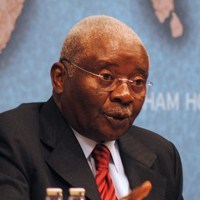If Mozambique has attracted international headlines over the past year, it has been mainly for the return to armed conflict in central Mozambique by the ex-rebels Renamo as well as for new discoveries of world-class gas reserves in the country’s offshore waters. But while the results of Mozambique’s municipal elections, which took place on Nov. 20, have not attracted the same level of international attention, they are an important indicator of the health of political pluralism in a country touted as a post-conflict success story with impressive GDP growth.
The election results will influence how the Mozambique government deals with Renamo over coming months and, more importantly, the politics of succession: President Armando Guebuza is expected to leave office after Mozambique holds nationwide presidential and legislative elections in October 2014. In the past, ruling party Frelimo has chosen its candidate for these elections years in advance. Not so this time, and although Guebuza has several times said publicly he does not intend to run for a third term, finding a successor has not been a smooth process. Indeed, the situation is still so uncertain that it is impossible to predict who Frelimo will finally pick.
Out of a population of 24 million, just more than 3 million voters were estimated to be eligible to vote in the 53 municipalities where polling took place on Nov. 20. Frelimo won at least 50 of those contests, with two others won by the splinter opposition Mozambique Democratic Movement Party (MDM) and one mayoral vote annulled because a candidate was mistakenly left off the ballot. The new mayoral election will take place on Dec. 1, with the municipal election likely to be rerun on the same day.

